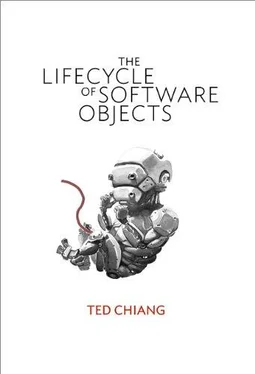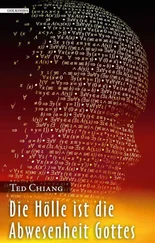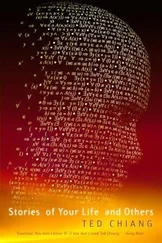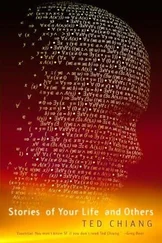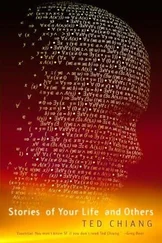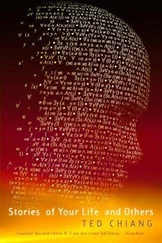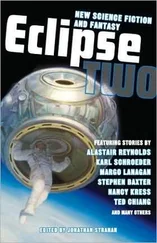Ana remembers how much a difference it made the first time she saw Jax wearing a physical body. If a digient were inhabiting a doll, would that make the idea of sex more appealing? No. She’s had her face right up against Jax’s face, cleaning smudges off his lenses or inspecting scratches, and it’s nothing like being close to a person; with a digient there’s no feeling of a personal space being entered, not even the trust signified when a dog lets you rub its belly. At Blue Gamma they’d chosen not to put that kind of physical self-protectiveness into the digients–it didn’t make sense for their product–but what does physical intimacy mean if there aren’t those barriers to overcome? She doesn’t doubt that it’s possible to give a digient an arousal response close enough to human that both parties’ mirror neurons would kick in. But could Binary Desire teach a digient about the vulnerability that came with being naked, and what you were telling someone with your willingness to be naked in their presence?
But maybe none of that matters. Ana replays the recording of the videoconference, listens to Chase saying that it’s a new frontier, sex with a non-human partner. It’s not supposed to be the same as sex with another person, it’ll be a different kind of sex, and maybe it’ll be accompanied by a different kind of intimacy.
She thinks of an incident that took place when she worked at the zoo, when one of the female orangutans passed away. Everyone was heartbroken, but the orangutan’s favorite trainer was particularly inconsolable. Eventually he confessed that he’d been having sex with her, and shortly afterwards the zoo fired him. Ana was shocked, of course, but even more so because he wasn’t the creepy pervert she imagined a zoophile would be; his grief was as deep and genuine as that of anyone who had lost a lover. He’d been married once, too, which surprised her; she’d assumed such people couldn’t get a date, but then she realized she was buying into the stereotype about zookeepers: that they spent time with animals because they couldn’t get along with people. As she did at the time, Ana again tries to pin down exactly why nonsexual relationships with animals can be healthy while sexual ones can’t, why the limited consent that animals can give is sufficient to keep them as pets yet not to have sex with them. Again she can’t articulate an argument that isn’t rooted in personal distaste, and she’s not sure that’s a good enough reason.
As for the question of digients having sex with each other, the topic has occasionally been discussed in the past, and Ana has always felt that the owners are fortunate not to have to deal with it, because sexual maturity is when a lot of animals become difficult to handle. There isn’t even the guilt that might be associated with neutering Jax surgically, because she’s not depriving him of a fundamental aspect of his nature. But now there’s a thread on the discussion forum that is making her reconsider things:
FROM: Helen Costas
I don’t like the idea of anyone have sex with my digient, but then I remember that parents never want to think about their kids having sex, either.
FROM: Maria Zheng
That’s a false analogy. Parents can’t stop their children from becoming sexual, but we can. There’s no intrinsic need for digients to emulate that aspect of human development. Don’t go overboard with the anthropomorphic projection.
FROM: Derek Brooks
What’s intrinsic? There was no intrinsic need for digients to have charming personalities or cute avatars, but there was still a good reason for it: they made people more likely to spend time with them, and that was good for the digients.
I’m not saying we should accept Binary Desire’s offer. But I think what we need to ask ourselves is, if we make the digients sexual, would that encourage other people to love them, in a way that’s good for the digients?
Ana wonders if Jax’s asexuality means he’s missing out on things that would be beneficial for him to experience. She likes the fact that Jax has human friends, and the reason she wants Neuroblast ported to Real Space is so he can maintain those relationships, strengthen them. But how far could that strengthening go? How close a relationship could one have before sex became an issue?
Later that evening, she posts a reply to Derek’s comment:
FROM: Ana Alvarado
Derek raises a good question. But even if the answer is yes, that doesn’t mean we should accept Binary Desire’s offer.
If a person is looking for a masturbatory fantasy, he can use ordinary software to get it. He shouldn’t buy a mail-order bride and slap a dozen InstantRapport patches on her, but that’s essentially what Binary Desire wants to give its customers. Is that the kind of life we want our digients to have? We could dose them with so much virtual endorphin that they’d be happy living in a closet in Data Earth, but we care about them too much to do that. I don’t think we should let someone else treat them with less respect.
I admit the idea of sex with a digient bothered me initially, but I guess I’m not opposed to the idea in principle. It’s not something I can imagine doing myself, but I don’t have a problem if other people want to, so long as it’s not exploitative. If there’s some degree of give and take, then maybe it could be like Derek said: good for the digient as well as the human. But if the human is free to customize the digient’s reward map, or keep rolling him back until he finds a perfectly tweaked instantiation, then where’s the give and take? Binary Desire is telling its customers that they don’t have to accommodate their digients’ preferences in any way. It doesn’t matter whether it involves sex or not; that’s not a real relationship.
#
Any member of the user group is free to accept Binary Desire’s offer individually, but Ana’s argument is persuasive enough that no one does so for the time being. A few days after the meeting, Derek tells Marco and Polo about Binary Desire’s offer, figuring that they deserve to be kept informed of what’s going on. Polo is curious about the modifications Binary Desire wanted to make; he knows he has a reward map, but has never thought about what it would mean to edit it.
“Might be fun editing my reward map,” says Polo.
“You not able edit your reward map when you working for someone else,” says Marco. “You only able do that when you corporation.”
Polo turns to Derek. “That true?”
“Well, that’s not something I would let you do even when you are a corporation.”
“Hey,” protests Marco. “You said when we corporations, we make all our own decisions.”
“I did say that,” admits Derek, “but I hadn’t thought about you editing your own reward map. That could be very dangerous.”
“But humans able edit own reward maps.”
“What? We can’t do anything like that.”
“What about drugs people take for sex? Ifridisics?”
“Aphrodisiacs. Those are just temporary.”
“InstantRapport temporary?” asks Polo.
“Not exactly,” says Derek, “but a lot of the time when people take that, they’re making a mistake.” Especially, he thinks, if a company is paying them to take it.
“When I corporation, I free make own mistakes,” says Marco. “That whole point.”
“You’re not ready to be a corporation yet.”
“Because you not like my decisions? Ready mean always agree with you?”
“If you’re planning on editing your own reward map as soon as you’re a corporation, you’re not ready.”
“I not said want,” says Marco emphatically. “I don’t want. I said when corporation, I free do that. That different.”
Derek stops for a moment. It’s easy to forget, but this is the same conclusion the user group came to during forum discussions about incorporating the digients: if legal personhood is to be more than a form of wordplay, it has to mean granting a digient some degree of autonomy. “Yes, you’re right. When you’re a corporation, you’ll be free to do things that I think are mistakes.”
Читать дальше
